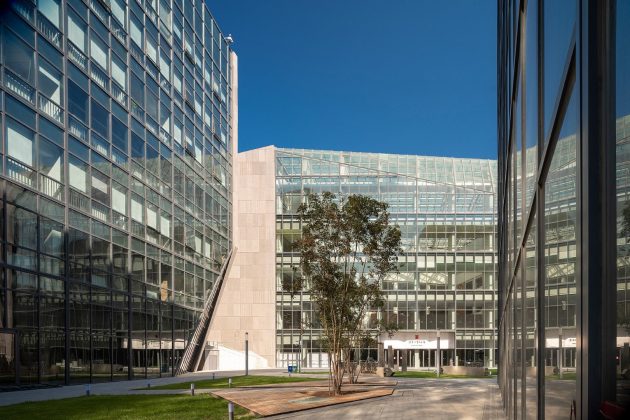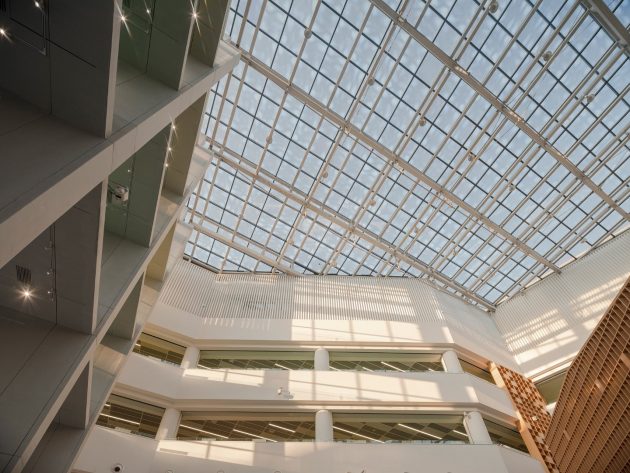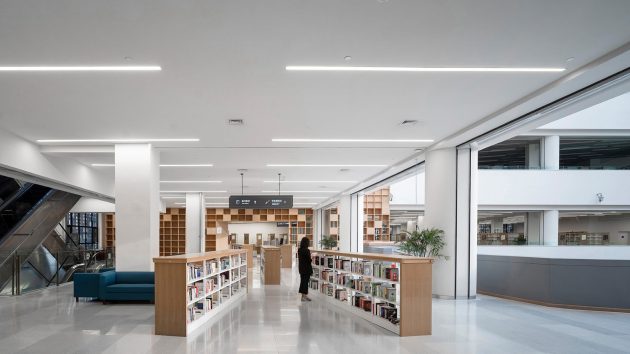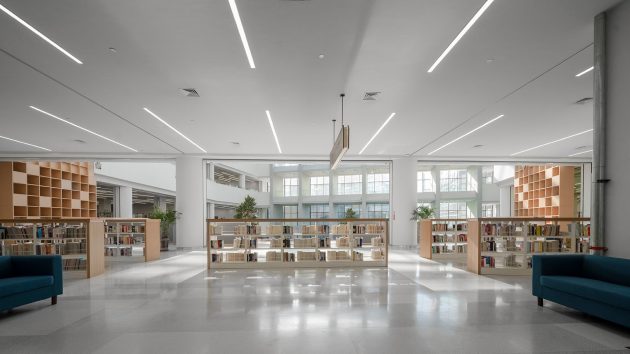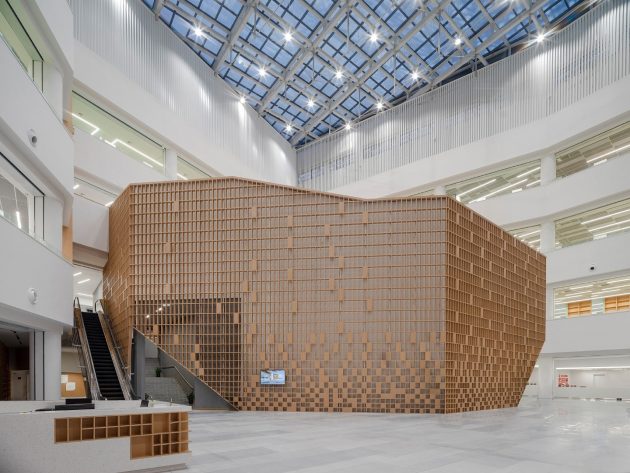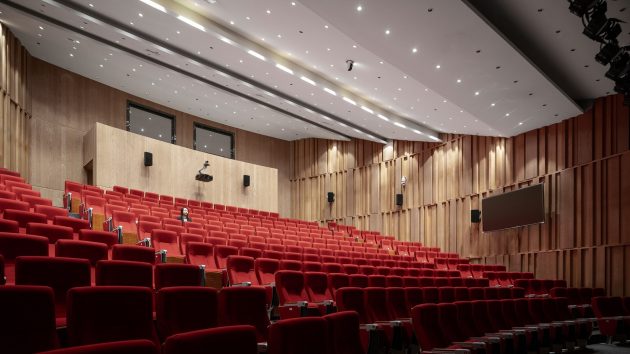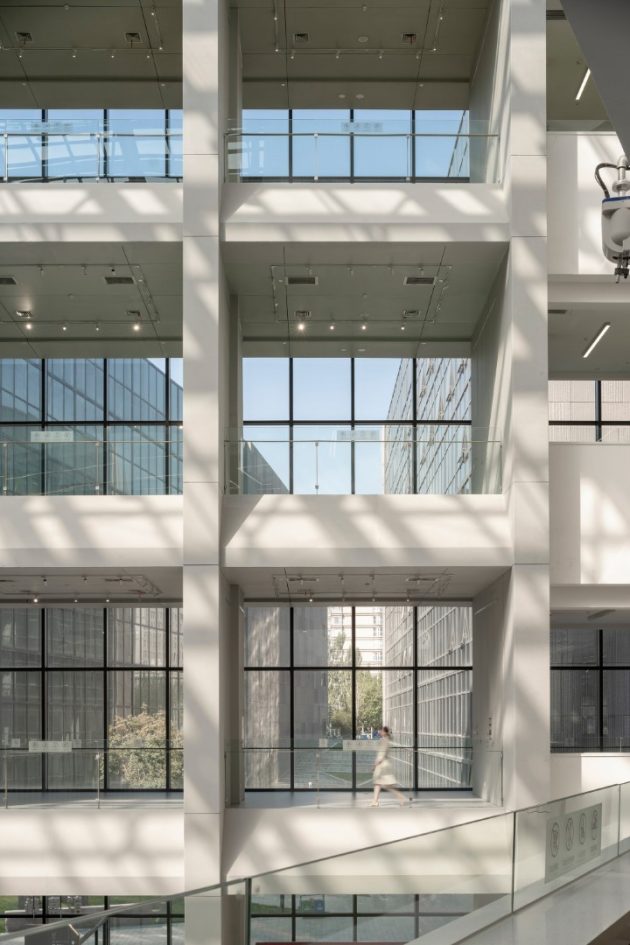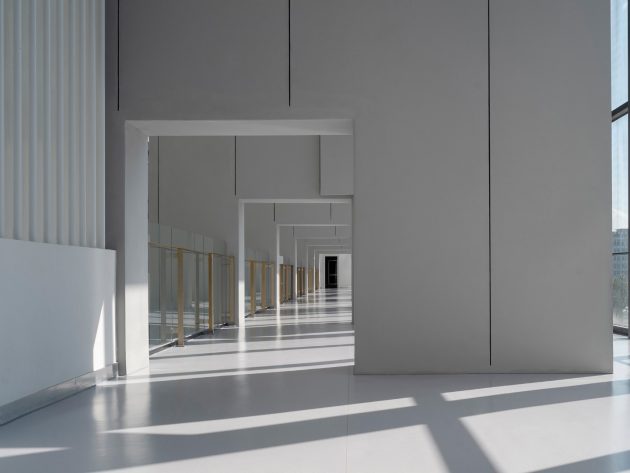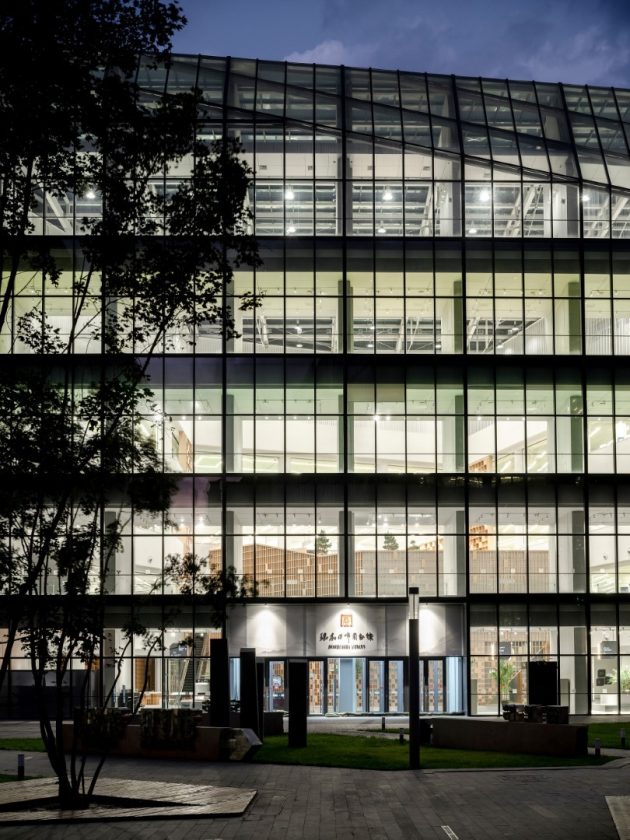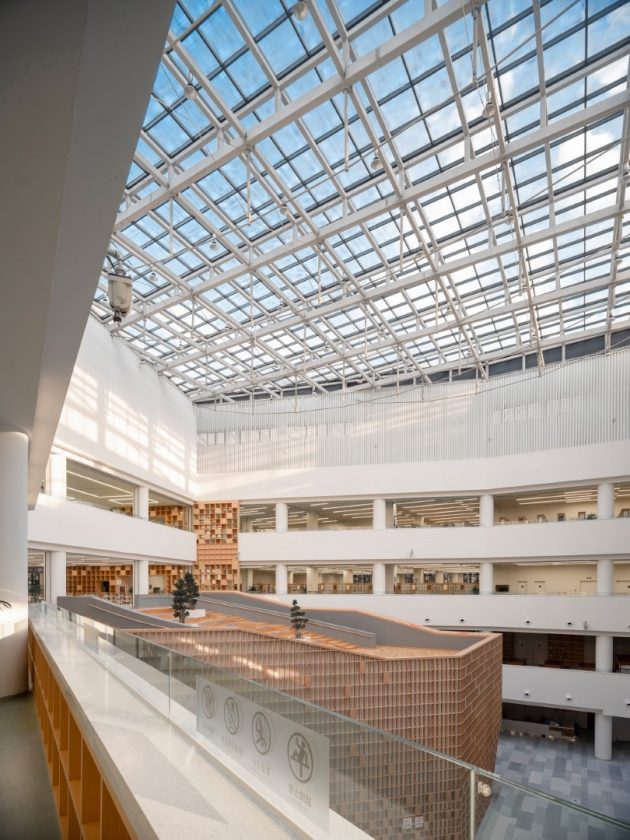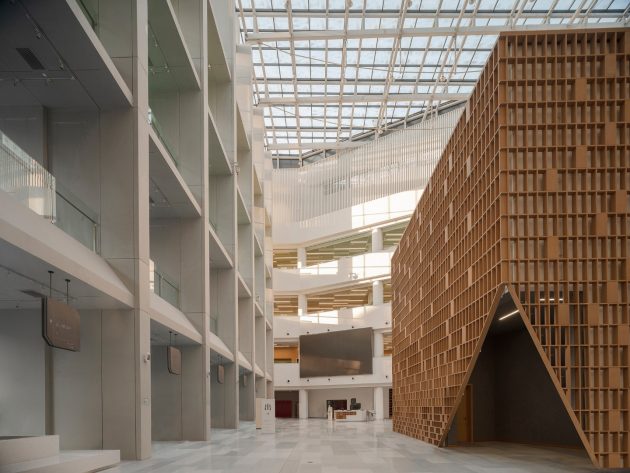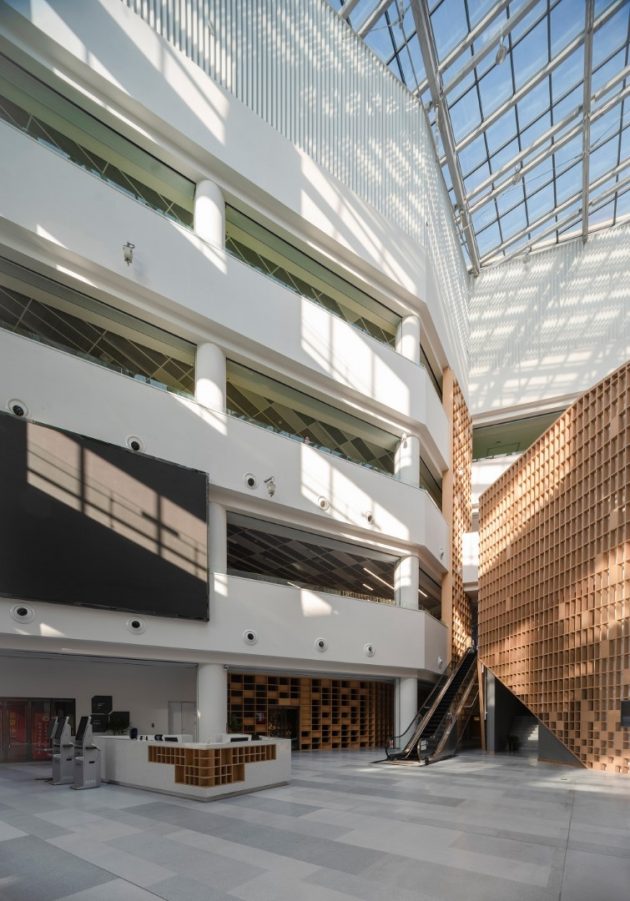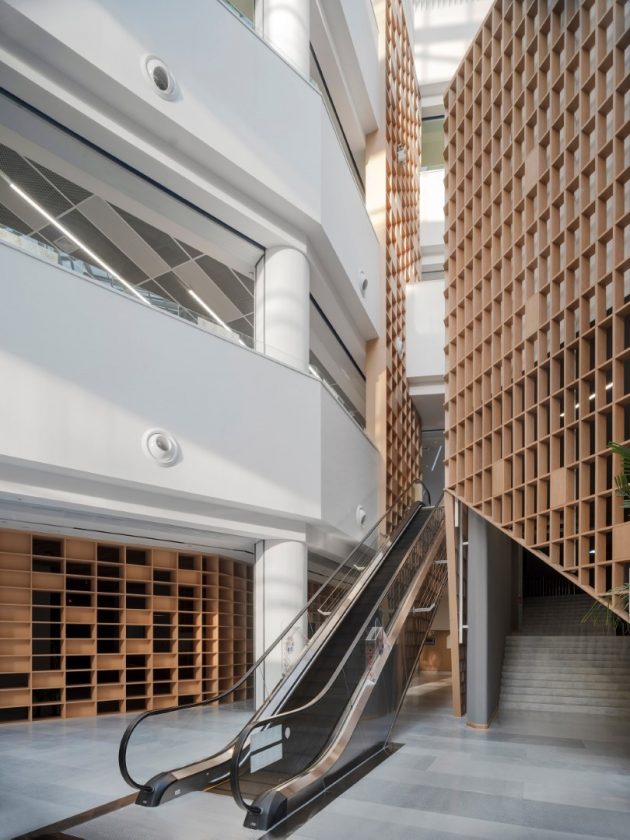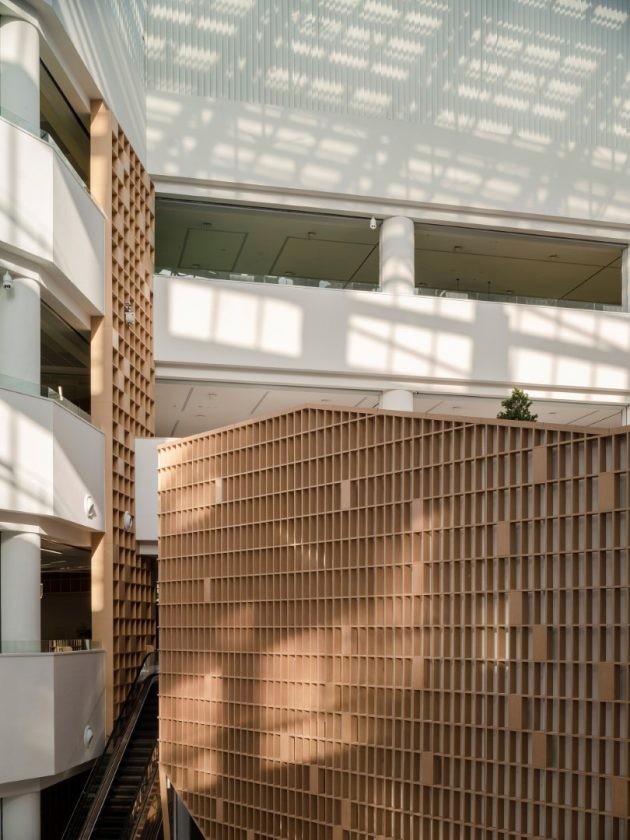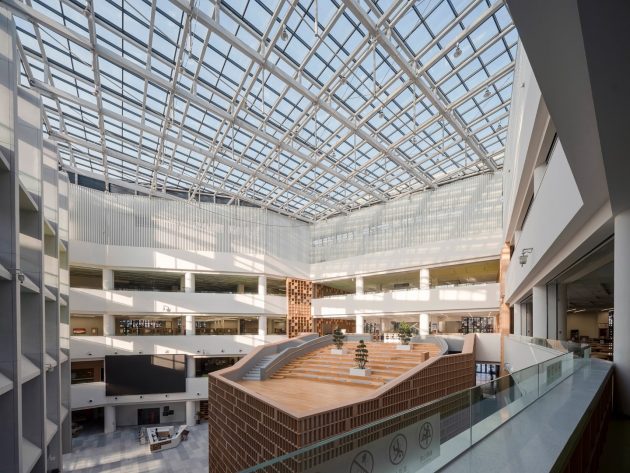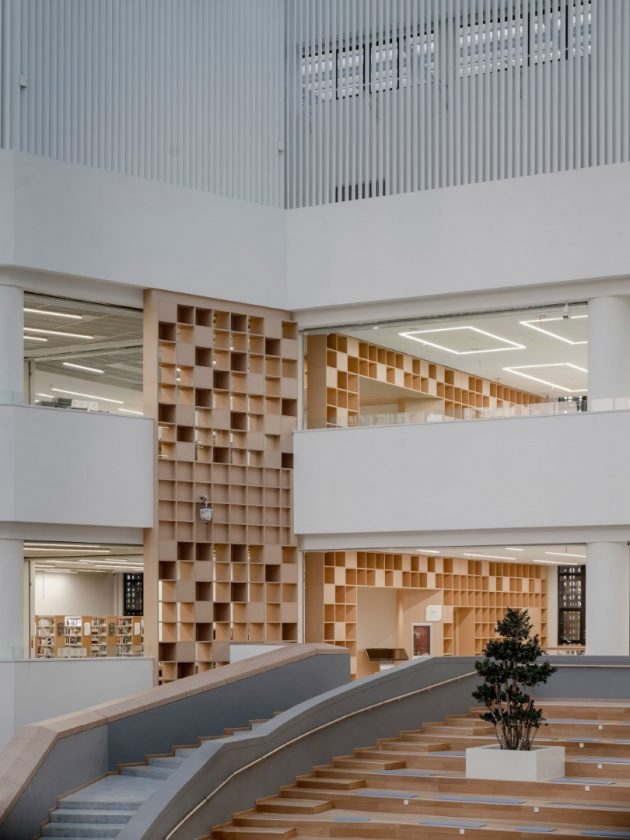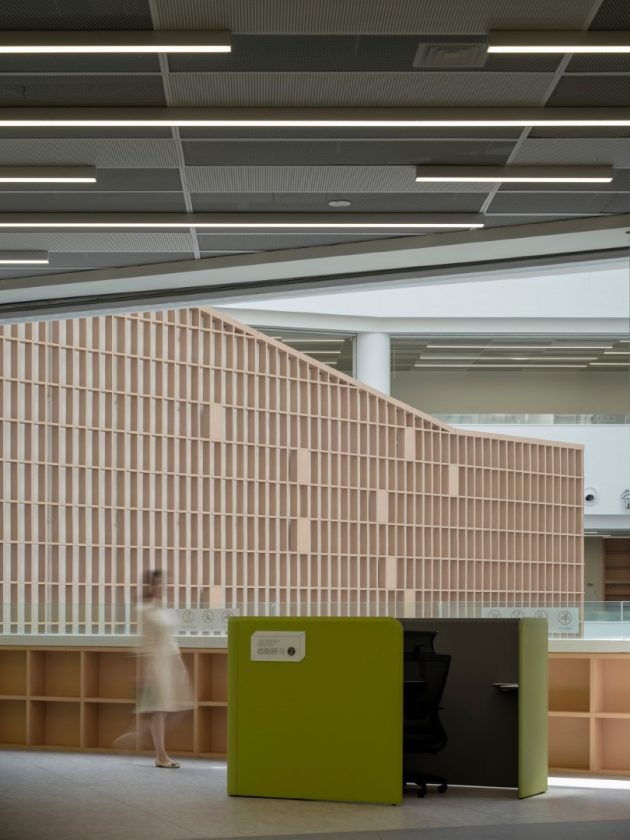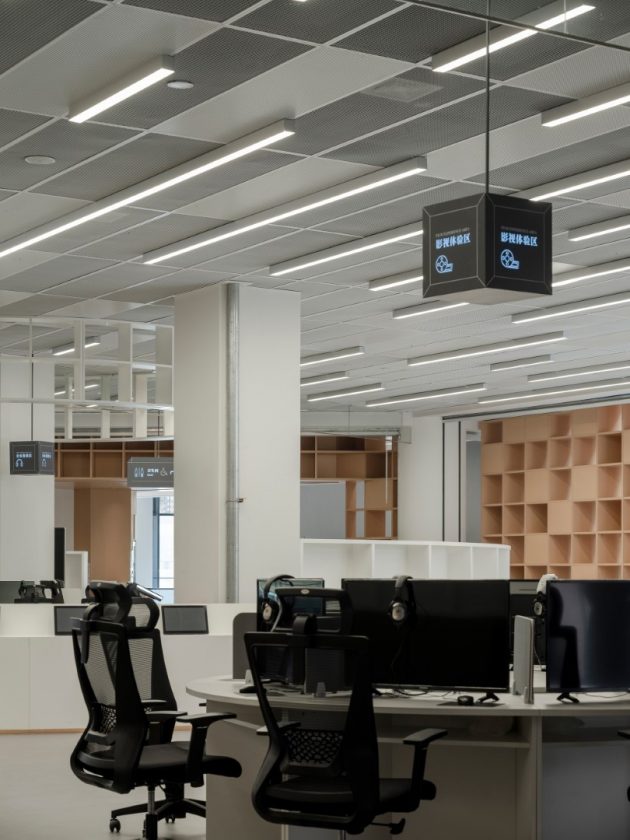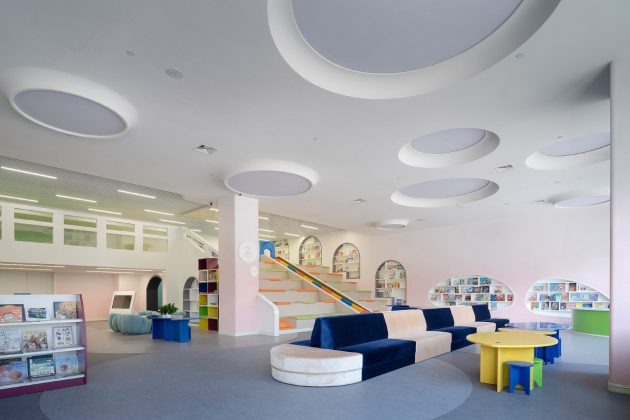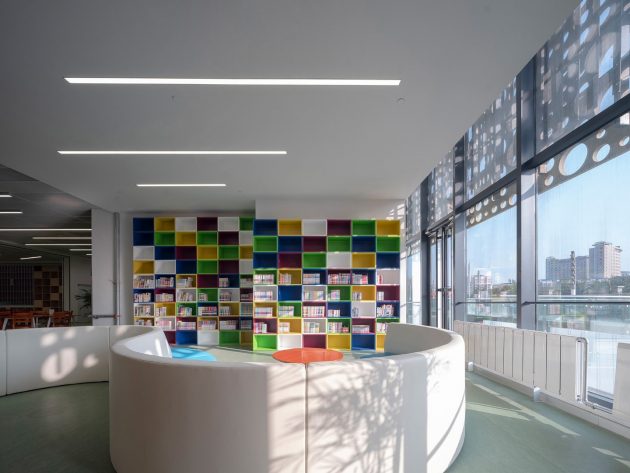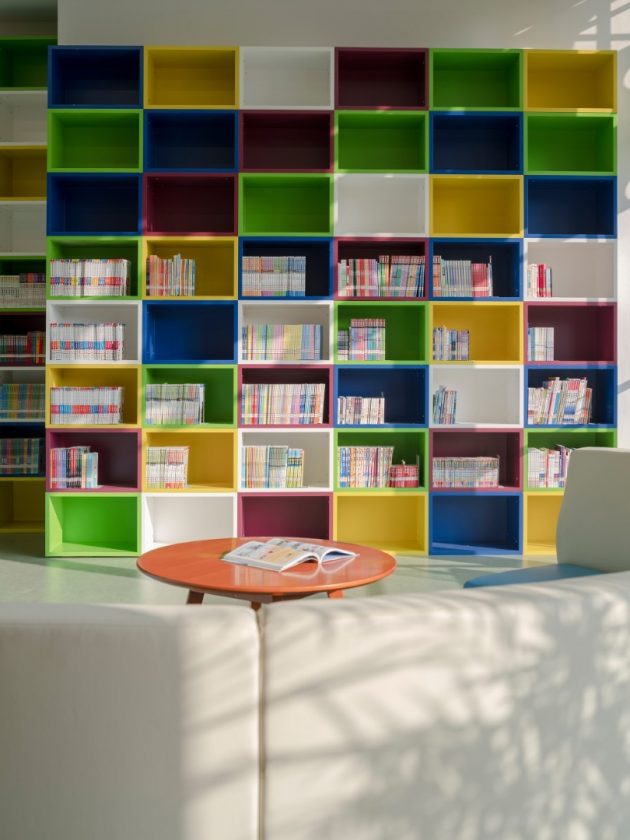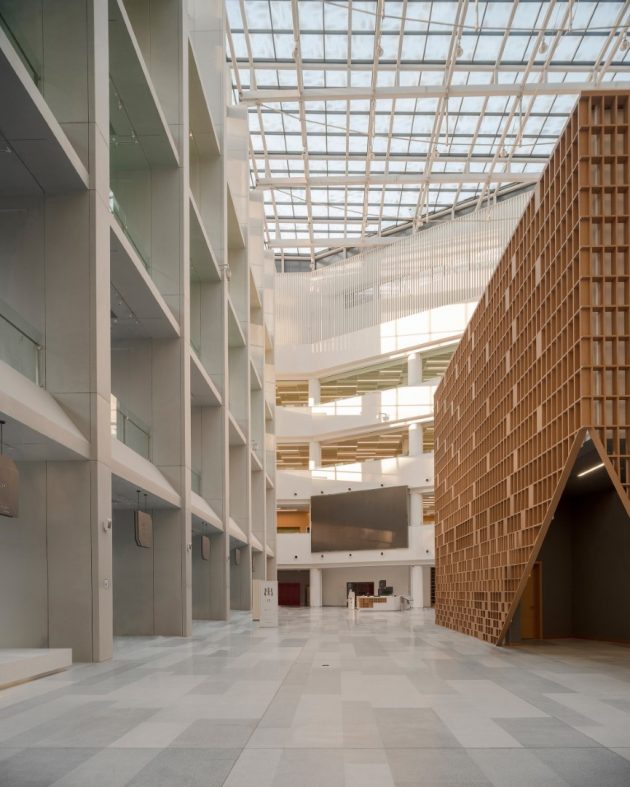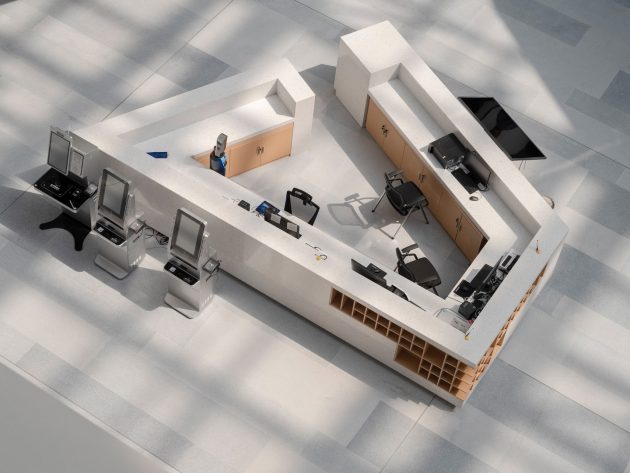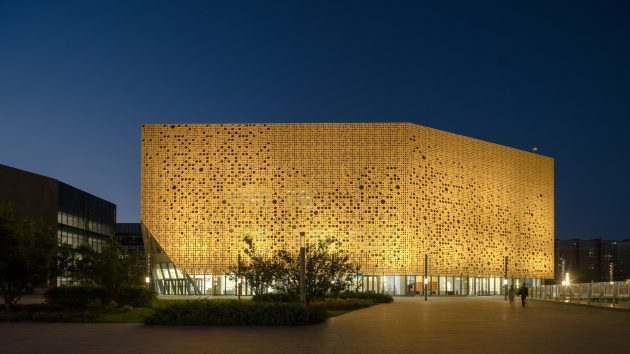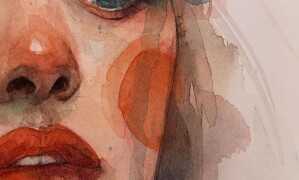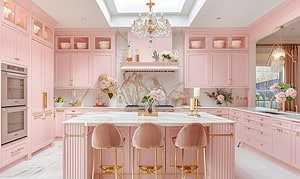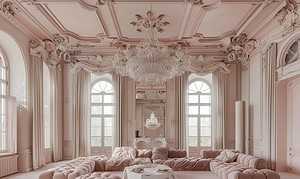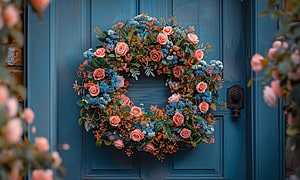Project: Zhangjiakou Library
Architects: TANZOSPACE
Location: Hebei, China
Year: 2021
Photographs by: SHI Yunfeng
Zhangjiakou Library by TANZOSPACE
Two million years ago, human groups with different culture backgrounds converged and multiplied in Zhangjiakou. They initially reclaimed the land here, opening a precedent for Chinese civilization.
Since then, this piece of land is never be barren. Eastern humans and Chinese civilization have come from here. With the approach of the Winter Olympics, Zhangjiakou is showing its new look to the world.
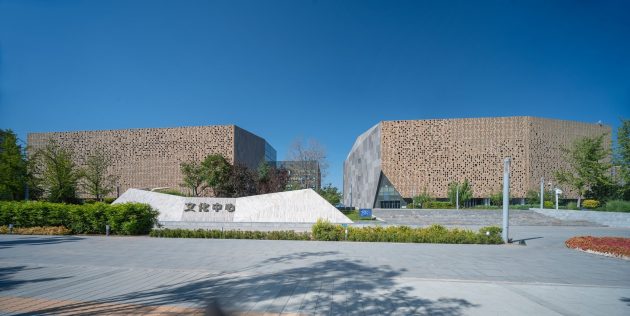
Miniature landscape
The cohesion of city humanism
Zhangjiakou is built close to mountains and rivers, surrounded on three sides by mountains, in the north, west and east. The Zhangjiakou Library, Archives, Museum, and Planning Museum are integrated into one in the central canyon area. Those three architecture massing in different sizes are harmonious in diversity, and open to the south. The building facade is covered by recyclable perforated panels. The entire building complex a regional miniature landscape in the way of the contemporary artistic treatment.
The library on the east side is the largest, with a total construction area of 22,000 square meters. The total book collection is about 1.1 million volumes, with 2,100 reading seats. The open-shelf book storage in the library is integrated with the reading area in order to provide the functions of “collection, search, borrowing and reading”.
Less is not empty but condensed; more is not crowded but appropriate. In this project, economics is aesthetics; abandon trivial and complicated decorations to optimize cost and precise design. Interior design follows the principle of systematic design, and extends based on the logic of architectural design.
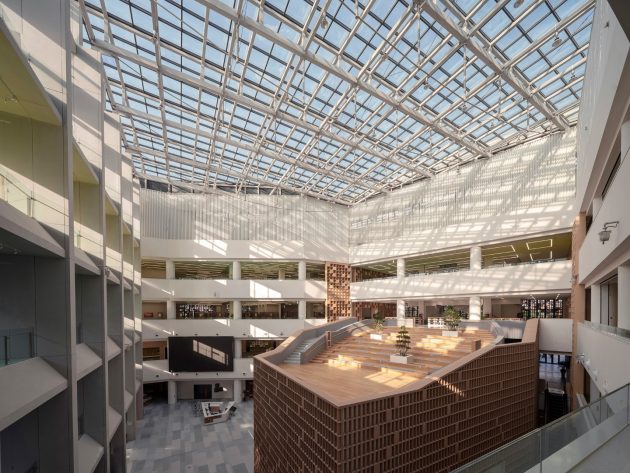
Architecture is the art of man-made layering, release the restrictions and creating spaces of use, emotion and feeling. The overall building space adopts the design of an integrated ceiling curtain wall with an atrium. The platforms and main stairs on each floor define the functional areas and appearance of the library structure.
The interior is unified in the texture of gray-white cement cladding and logs. The light pours down from the top at different angles. People wander in the shades of the layered light and shadow, to enjoy the interesting changes of vision.
Compound space
Explaining public property of library
The modern library is not only a place for storage and borrowing, but also a space where people love to stay, socially interact, to be inspired and surprised, effortlessly transferred from”reading to interaction ” through the different scenarios. In future urban life, it will become a link connecting people with knowledge, experience, and creation. Within the city, it will explore the needs and possibilities of the community and stimulate the fresh vitality of the field.The library as the carrier of books, it is sometimes abstract and sometimes concrete, when the concept of books is integrated into the space. It always conveys power. From the three scales of “large, medium and small” to the three light and dark levels of “black, white and gray”, the design logic is based on “Two in one, three in two, three in all” with modular design.
“Book + Shelf” is arranged and composed in the form of a lattice, which is converted from a two-dimensional plane to a three-dimensional space composition, and connects the theme and interaction of the space.
The pavement of the existing building’s outdoor plaza is extended and assembled with strips of light three-color terrazzo, which is in harmony with the holistic design and changes organically, reduce the rate of material wastage, also effectively integrate interior spaces and exterior spaces.
Visitors enter from the main entrance on the first floor underground. The “art installation” form of the multi-functional hall (small theater/large lecture hall) in the atrium has an extremely upward sense, weakening the pressure of “canyon” formed by the existing building structure. As the focal point, the multi-functional hall is like the heart pumping out vitality and energy in the library, activating yet stabilizing the entire space.
Meanwhile, the lattice elements are arranged in different orders, filled with high quality sound-absorbing materials, which effectively reduce the problem of noise in large spaces.
There is a small stepped square, through the connection of roof of the large lecture hall and the second floor. The natural green plants are arranged in alternates with a rich sense of visual hierarchy of the green on the first floor underground, which expand the traffic flow lines in the space, in order to provide people a relatively open field with nature.
The sunlight in Zhangjiakou is strong and the architecture facade is covered with the perforated curtain wall, which makes the indoor light less suitable for reading. The designer artfully placed that area as a promenade with a stage effect,and placed the reading area inward. The constantly changing light became a spotlight, illuminating the unknown world of readers.
Cultural aesthetics
Shape social value
The establishing of spiritual civilization is inseparable from cultural genes.The library expand the dimensions of people’s artistic and literary life, and shape the in-depth experiences of interactions between human and architecture during the decades. A public library support people’s spiritual breathing as the lung of city, and heal people of different ages.
The library is equipped with a modern intelligent management system to maintain public order and safety at the entrance and exit, and also provide self-service storage, certificate application, system retrieval and LED screen with rolling information. The convenience of high technology allows people to effortlessly obtain the information they need.
The designer programs the connections of the spaces like a director to assign the positions and moving lines of different roles. The open space plan allows people of different ages and needs to learn, interact and gather together here. The division of the spaces are able to promote multiple ways communication and provide a spatial situation of spontaneous encounters.
It has set up a variety of artistic experiences in the youth reading area, as a high-frequency use area. The multi-dimensional video area and the music room are available to experience the leisure time alone, if visitors feel exhausted. It has the best sunlight in children’s area.The kids can read in the cave, enjoy audiovisual fun in the children’s cinema, and explore and play safely.
In addition to specific functional areas, some areas are reserved for other possibilities in future. The transparency of the architectural material ensures the possibilities of various activities; It reshapes the expression of the space through the opening and closing of the wall. The modular composition allows the space to be flexibly transformed into a gallery, concert hall, recording studio, event area, etc.
Various activities based on history and culture are staged here. There is a private museum in the library, which displays the historical documents of Zhangjiakou. It gives a close look of history of thousands of years through the small window. It conveys the proper posture of a public building smoothly and accurately without extra visual symbols and image features. The atmosphere of the interior and exterior spaces of the library building and changes in urban life are always concerned by the designer.
Zhangjiakou will become an international meeting point during the upcoming Winter Olympics through the cultural communication. It is like a seed that transmits civilization, giving enlightenment to people in modern time. The “architecture of books” is constantly developing and upgrading. It represents the never-ending spiritual construction of people and their cities, although it may not lead to absolute genuine knowledge.
-Project description and images provided by TANZOSPACE

